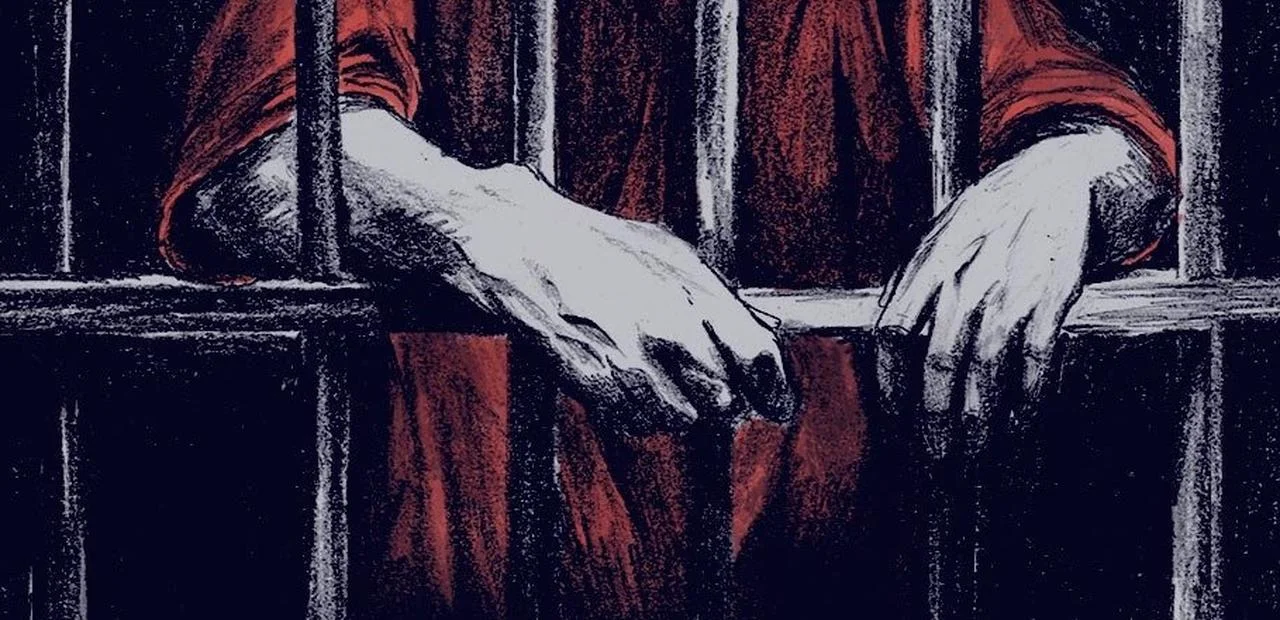The Deskovic Foundation is happy to announce their collaboration with Next Step Tutors, a national organization founded by a group of high school students that provides support to other students to succeed academically, and also has a history of supporting exonerees.
Wrapping deliberations in less than a day, jurors delivered a not guilty verdict in the retrial of a New York man accused as a teenager of raping and murdering a child nearly three decades ago.
Andrew Krivak gave a sigh of relief Monday after being exonerated of the most notorious crime in Putnam County history: the rape and murder of 12-year-old Josette Wright.
When Andrew Krivak and Anthony DiPippo were arrested July 1, 1996, in the rape and murder of 12-year-old Josette Wright, Putnam sheriff's investigators knew they couldn't interview DiPippo because he had a pending criminal case.
But the 18-year-old Krivak was fair game. And the eight hours they spent with him that day, culminating in a purported confession, would come to define his case and land him in prison for nearly a quarter of a century.
As the New York legislative session opens this month, youth justice advocates and progressive Democratic lawmakers are rallying around a bill that would protect teenage crime suspects from being bullied by police into falsely confessing or incriminating themselves.
For years, Jeffrey Deskovic has devoted his time and talents to helping people who fell into the same trap that ensnared him back when he was just 17 years old: being wrongfully convicted and imprisoned for violent crime.
Last week, Andre Brown, who has been wrongly convicted and incarcerated for 23 years was released on his own recognizance. The judge stopped short of declaring him factually innocent, but he was granted a new trial and there is a pending appeal of his case.
While much remains up in the air, Andre Brown is now fighting on the outside rather than trying to get out and that makes a huge difference.
A Bronx resident who spent approximately half of his life behind bars for a crime he says he didn’t commit is getting the justice he has sought for years.
Jeffrey Deskovic of the Deskovic Foundation was a featured speaker at a panel discussion at Sarah Lawrence College on “When Should Prosecutors be Prosecuted?"
Jeffrey Deskovic went to prison at age 17 for a rape and murder he didn't commit. When he got out at age 33, he launched a foundation to help other innocent prisoners.
Since the shooting of Mike Brown, more than 14 black teens have been killed by the police, including 12-year-old Tamir Rice, a boy in Cleveland, Ohio who was murdered less than two seconds after police arrived at a playground to answer a 911 call related to a black child carrying a pellet gun.
In the US, state laws governing compensation for wrongfully convicted people vary significantly. While some states offer sizable packages for the exonerated, at least 20 offer nothing. And even for those that do, it may not be enough to make up for the emotional damage on those who've been wrongfully convicted. Hari Sreenivasan reports.
On a snowy evening in late March, just over a year after walking out of prison, where he had spent 23 years for a crime he didn’t commit, William Lopez entered a CVS in the Bronx and did something inexplicable. After paying for a prescription at the pharmacy counter, he paused to grab some other things—two sticks of Old Spice deodorant and some allergy medicine. Then, without paying, and in full view of a security guard, he walked out. Police were called and Lopez was arrested.
In January 1990, when Jeffrey Deskovic was 16 years old, he was arrested for the rape and murder of his classmate, 15-year-old Angela Correa in Peeskill, N.Y. He was not guilty of the crimes but became a suspect after he was late to school the following day and after he cried openly at her funeral.
It had been a while since Jeffrey Deskovic hosted one of his weekday evening singalongs, so last month he made a few calls and brought some friends together at the Karaoke Cave, a noisy little bar on East 13th Street in Manhattan. At 6 p.m. the place was filled with young professionals sipping beers and shouting into microphones in an undemanding, if embarrassing, environment. But to Mr. Deskovic and the men who joined him, standing up in public and singing cheesy pop songs was more than an innocent release.
Murder suspect William Lopez spent 23 years in prison fighting to prove his innocence. Letters and appeals fell on deaf ears. Then on a cold day in January, a judge finally believed him, and said, “You are free to go.” Suddenly, after years of adjusting to the rules and accepting the unfairness of life behind bars, he could go home.
As an activist, I receive many requests for help from people who suffer from injustice or are imprisoned. Recouping lost freedom is the ultimate goal, but it is rarely achieved. However, once in a blue moon, through determination and help from others, this goal is met.
















